AudioCulture
The noisy library of New Zealand music
Te pātaka korihi o ngā puoro o Aotearoa
Golden Harvest
Simon Grigg was on the sharp end of the Auckland punk scene at the time: “The first time I saw Golden Harvest was in 1978 during the punk era in Auckland’s Downtown Centre. Several of us went along expecting we could have a laugh, but the laugh was totally on us – these guys were incredible and we stood there in awe. I’ve been a fan ever since: a mighty band, phenomenal musicians and a stage presence that defined the era.”
Peter Urlich was in Th’ Dudes at time, on the same Key label as Hello Sailor and Golden Harvest, who began life as the Kaukau family band in Turangi.
“Golden Harvest were really cool ... they had an x-factor.”
“Golden Harvest were really cool. They were on the surface, a very slick ‘nightclub act’ but they had an x-factor and that was the chemistry of the marvellous Kaukau brothers and their charismatic frontman, Karl. We loved their unadulterated funk.”
As with too many bands, Golden Harvest didn’t last long in the spotlight: fewer than three years and just one album, with singer Karl Gordon out front of the Kaukau brothers Eru (aka Junior, bass), Mervin (drums), Gavin (rhythm guitar, vocals) and lead guitarist Kevin.
But their story began long before Karl’s arrival in 1976.
The 2017 CD reissue of the band’s self-titled album of 1978 – recorded at Stebbing and produced by Rob Aickin – threw attention back on Golden Harvest, whose songs ‘Love is Everything’, ‘Mrs G’, ‘Give a Little Love' and the RIANZ single of the year, ‘I Need Your Love' (all penned by Gavin Kaukau) bridged pop, disco and soul, and sometimes came with mercurial guitar by Kevin who was also inspired by Hendrix.
Hence their version of ‘All Along the Watchtower’ live and on the album.
In the 12-page liner notes to the reissue (remastered from the original tapes and with four additional A and B-side non-album tracks), Grant Gillanders of Frenzy Music fills in the long backstory of Golden Harvest.
The brothers – all approximately a year apart – formed as a family group and in 1971 entered a talent quest in Taupo as the Kaukau Family; they picked up the top prize of $10.
It was small beginning, but encouraging, and afterwards the brothers brought in sister Fiona as a dancer. Their mother Margaret made costumes and sometimes joining them on stage, while their father Eru became their manager.
As the Tiki Five they played every Saturday at the Turangi Community Centre and at various functions around the district.
Away from the public gaze of the main centres, they honed their craft.
Away from the public gaze of the main centres, they honed their craft, Kevin becoming proficient at Hendrix manoeuvres such as playing behind his head. By the time they relocated to Auckland in 1974 – without Fiona and now renamed Brother – they were seasoned players if still a little rough around the edges in terms of professionalism.
When they auditioned for promoter Benny Levin he immediately sensed their potential and arranged for music and vocal lessons. Merv was under the tutelage of legendary drummer Frank Gibson Jr; others who coached them included bassist Billy Kristian/Karaitiana, guitarist Tuhi Timoti and opera singer Lynne Cantlon.
Signed to a three-year management contract with Levin (alongside Craig Scott, Erena Clark and Bunny Walters), they entered the National Battle of the Bands – they came fourth, the winners were Think – and opened for Helen Reddy when the support act pulled out at the last minute.
Levin – always a canny operator and, like fellow impresario Phil Warren, with an eye to garnering publicity – decided a name change was in order and so ran a competition through the Sunday News for readers to come up with a new one.
As Gillanders notes, “After two weeks, Peter Bryant of Papatoetoe emerged as the winner with his entry, Golden Harvest. He won a three-pack collection of American Graffiti soundtrack albums.”
“We loved the name,” said Gavin Kaukau. “It sounded warm and optimistic.” Unlike the runner-up names, which included Black Pepper and Black Widow.
With Gavin on vocals, the newly christened Golden Harvest released their first single, a funked up treatment of the Beatles’ ‘Come Together’ with a remake of Larry’s Rebels’ ’60s hit ‘I Feel Good’ on the flipside. It did well enough to get them onto Ready To Roll, but their own sound was still being formed.
For the rest of 1975 and into the following year they toured (and were they opening act for Osibisa at the Auckland Town Hall) but the strain on Gavin’s voice showed. At Levin's insistence they looked for a new singer.
“There was an ad for auditions on Ready To Roll,” recalls Karl Gordon, “and after passing the second audition the job was mine. The guys pretty much accepted me as part of their family, and for the next three years we were family.”
It was with their next single, ‘I Need Your Love’, that the Golden Harvest story really gained an upward trajectory and the band earned a national reputation.
Producer Rob Aickin recalls that with Mike Harvey playing his recently acquired Moog synthesiser, “we came up with this great hook riff which really lifted the song”.
After the song won single of the year, Ken Williams, writing in Rip It Up, said, “Despite the limited scope of the New Zealand recording industry, Golden Harvest’s achievement is not to be denied. ‘I Need Your Love’ is one of the most original sounds to hit the airwaves in this country. Its ethereal, even fragile, drone jumped off the radio, the testing ground of the single record.”
Williams was writing just as the band was ready to release their album and had a new single out, ‘Love is Everything’ (which he described as “a distinctly ‘pop’ song, light and summery, aimed at the charts”).
The song’s writer, Gavin Kaukau, was unembarrassed by the recording’s deliberate sound: “If we put a commercial song down it might get into the charts. Live, a heavier number with a lot of showpiece in it might get more reaction, but recording is a different thing.”
There were certainly songs on the album which were showcase items live, like the more rocking ‘Right Time Of Year’ and of course their homage-to-Hendrix’s version of ‘All Along the Watchtower’ which allowed Gavin to go the full Jimi, sometimes playing with his teeth. The stunt “took a while to master. I had to live with sore gums for some time.”
As Williams also noted, “Gavin admits the group has a live face and a recording face, but it’s apparent they have not proved incompatible.”
Which perhaps is why Grigg and his punk friend who went to scoff came away impressed by the band’s power – “a massive 1000 watt PA system compete with 12-channel mixer” boasted the album's promo sheet – and songs that got people moving.
“Live, there’s something to see as well as hear,” said mic-swinging Karl Gordon with something akin to understatement.
“South Pacific soul was alive and well in 1978. Golden Harvest’s only album is the evidence.”
As Hello Sailor’s Harry Lyon said on the occasion of the Golden Harvest album reissue: “We [Th’ Dudes, Hello Sailor and Golden Harvest] all benefitted from the fantastic production team of Rob Aickin and Ian Morris who turned our ideas into radio friendly songs. Golden Harvest were a great bunch of guys, strong musically courtesy of the Kaukau brothers …”
The Golden Harvest album bridged and blended so many styles into a coherent and hit-filled package that it still stands as a landmark in New Zealand music. As music critic and commentator Nick Bollinger observed recently, “South Pacific soul was alive and well in 1978. Golden Harvest’s only album is the evidence.”
Academic and glam rocker Ian Chapman also said how inspirational they were to him when he was growing up: “From the glossy perfection of their Santana-like groove-based hit ‘I Need Your Love’ to their heavier, exciting, live sets performed all over the country, Golden Harvest brought an unexpected and wonderful splash of local colour and vibrancy to New Zealand’s late seventies music scene. In the process, they inspired a legion of young Kiwi musicians (myself, I watched with envy from nearby Hamilton) with the message that it didn’t matter where you came from or how ‘next door’ you were. If you had the goods, then you were uber-cool and you could foot it with anyone. Golden Harvest did that. It was fleeting but it was superb.”
And yes, it was fleeting.
The band continued to tour, there was talk of going to Australia and they released another single, ‘Hollywood Dreams’, in February 1979. It was co-written by Gordon, his first songwriting effort.
“I’ve been writing songs for years,” he told the Auckland Star at the time, “but only for fun. This time I did it seriously.”
He described it as sounding similar to The Cars – it certainly had the sharp New Wave pop sound – but he was quick to deny the band were heading in that direction.
Then there was another single penned by Gavin, ‘Live My Life’. But neither song had quite the same magic as their earlier work. And by that point Golden Harvest was starting to fray from the centre.
“We want to get a new stage act together,” Gavin told the Auckland Star, “something along the Pink Floyd lines. We want to be different than any other New Zealand band.”
Hendrix, New Wave, Pacific Soul, disco, pop and Pink Floyd all competing for space?
Kevin was the first to leave, in May of that year, wanting to move in a heavier direction – as his Hendrix infatuation had hinted at. Brother Gavin took over lead guitar for a while, but the end was in sight.
Singer Karl embarked on a solo career in 1980 with a single on Stebbing’s Key label, ‘I Wanna Do It With You’, then two more for RCA a couple of years later.
In a sad coda, Kevin – the showman of the band famed for his incendiary guitar work – barely played music for many years. After moving to Australia in 1984, he picked it up again with his band Eruption, which included brother Merv on drums. Both now went by the surname Johansen.
It was as if the Kaukau Family, Tiki Five, Brothers and Golden Harvest was something of a distant memory.
But not to those who fell under their spell, either for the hit singles on radio or their sometimes spellbinding live show, which they took all over the country.
In their time Golden Harvest had supported numerous international acts, among them Bob Marley and the Wailers at Western Springs. It says much for them that they were also comfortable opening for the Bay City Rollers and Electric Light Orchestra. They topped the bill at the Hinuera Festival in Cambridge and the Kimiora Māori Rock Festival in Hamilton.
Golden Harvest may have played on the same stage as the biggest and best internationals, but they also kept the faith with their local following.
When Ken Williams spoke to them for Rip It Up, Gavin Kaukau mentioned some of the places they would be playing in the following weeks: Auckland, Whangarei, Waiuku, Hamilton, Rotorua …
Williams suggested some of these places must seem like their hometown. “All of them,” said Gavin.
--
Thanks to Grant Gillanders, and the liner notes in the Golden Harvest album, reissued in 2017.
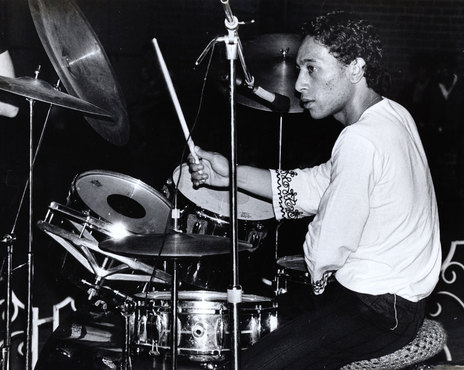
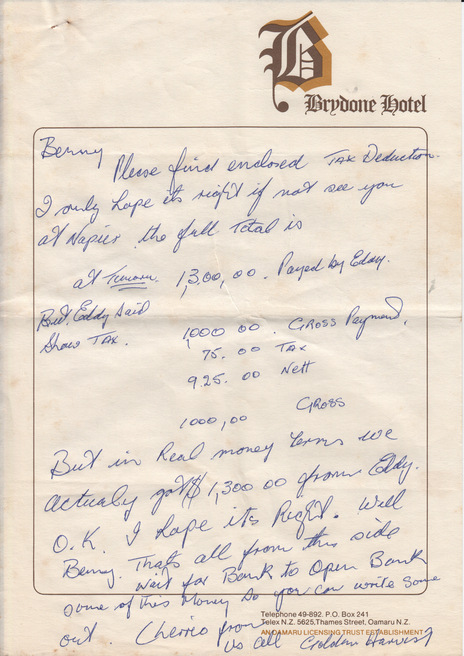
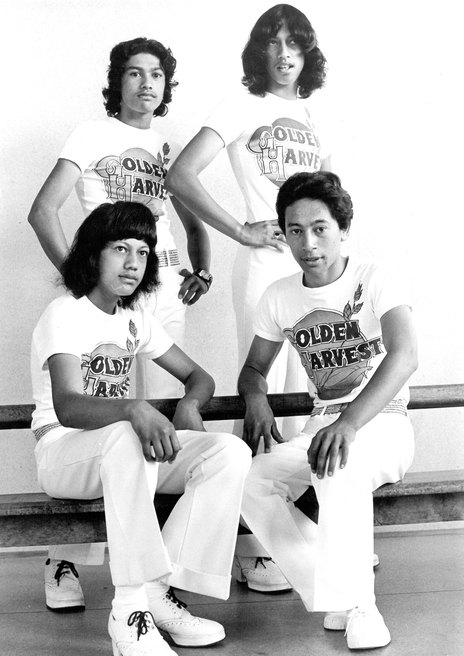
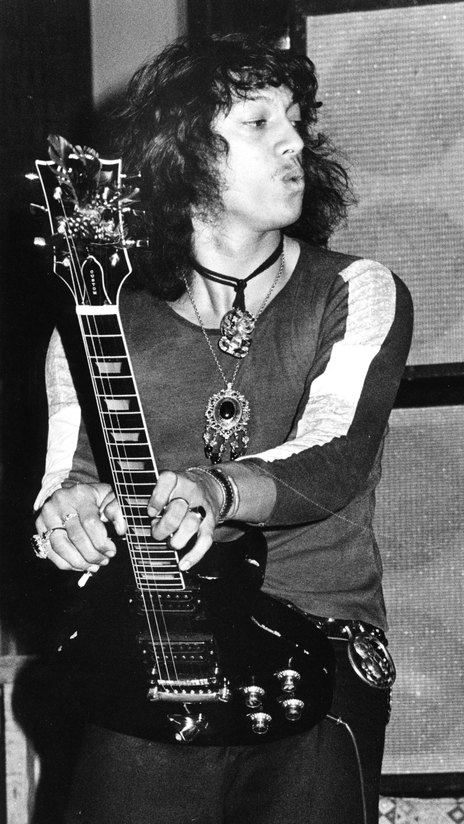
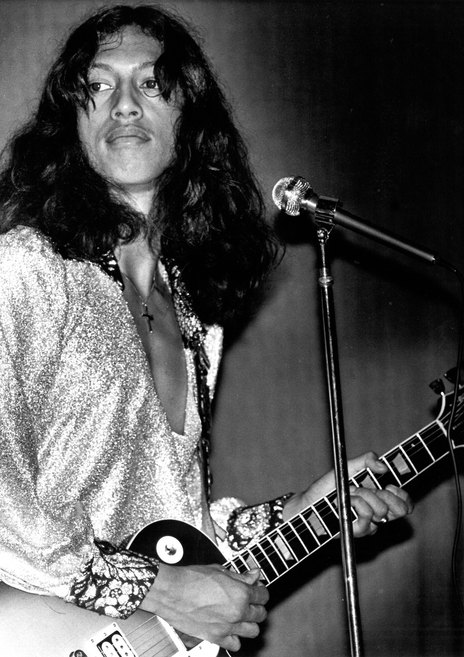
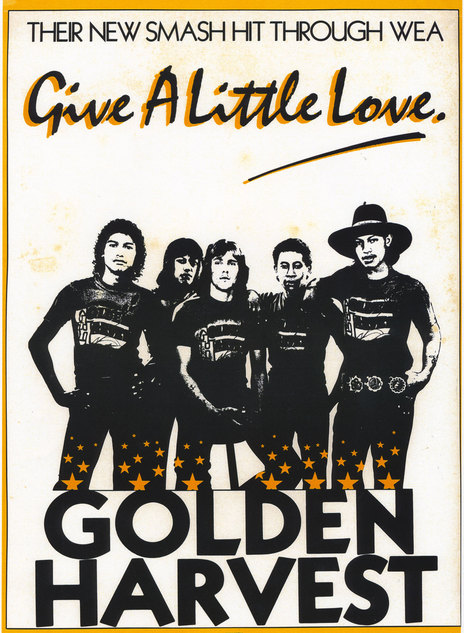
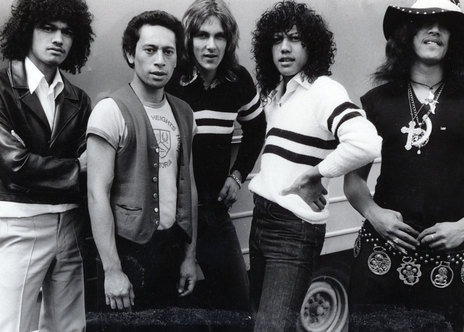
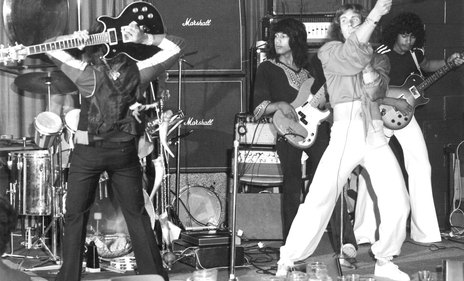
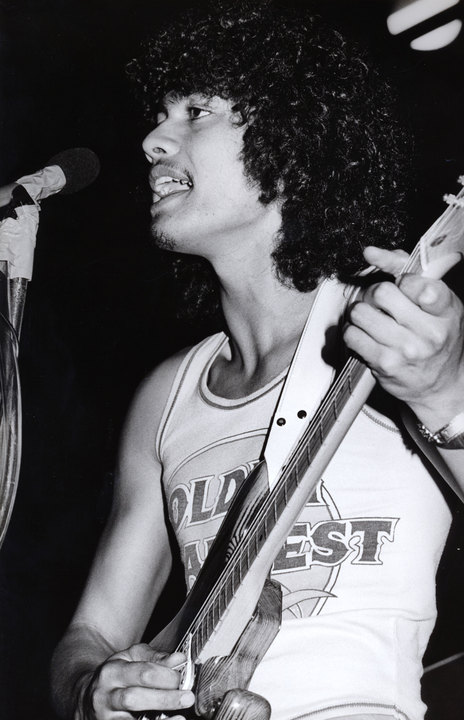
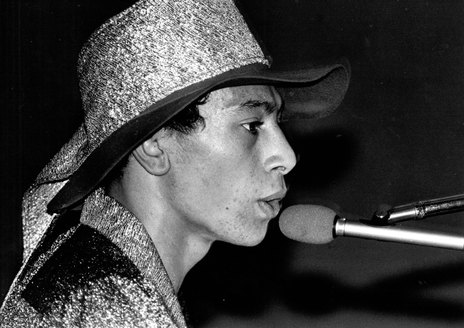
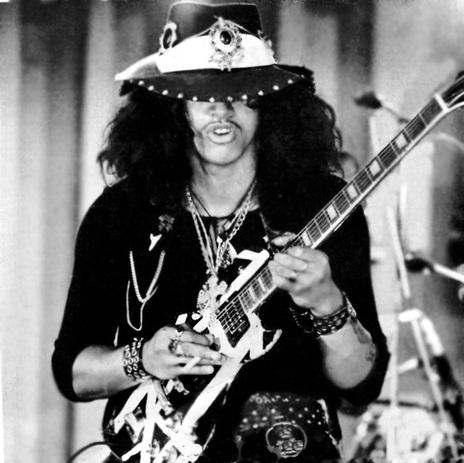
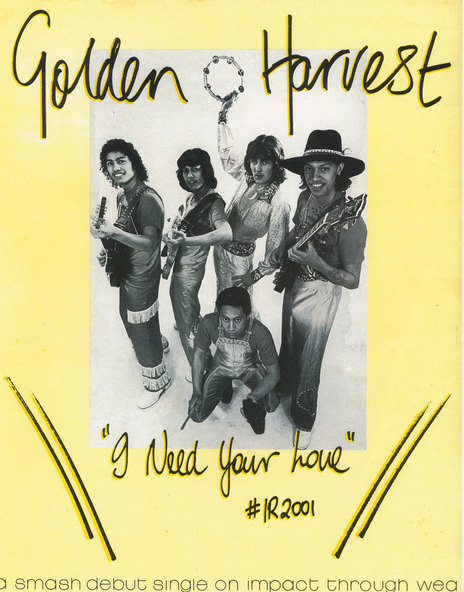
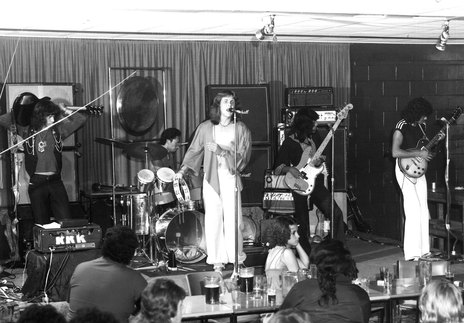
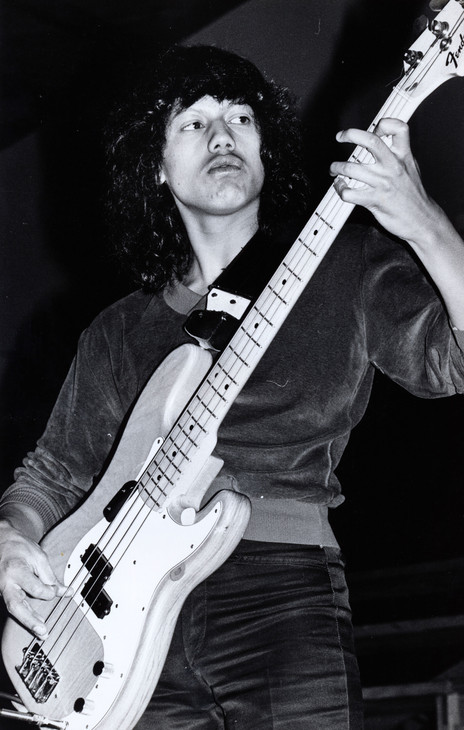
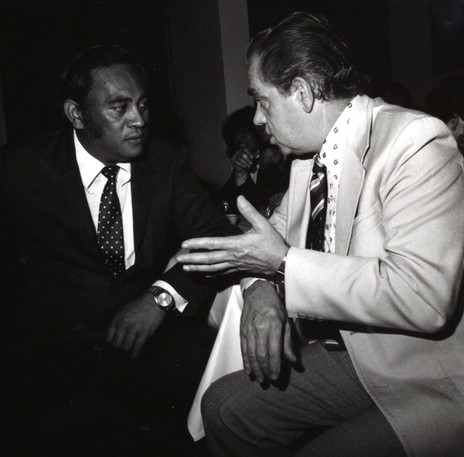
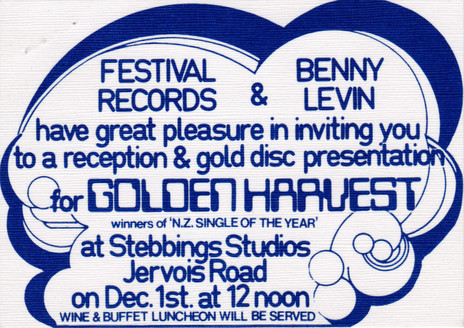
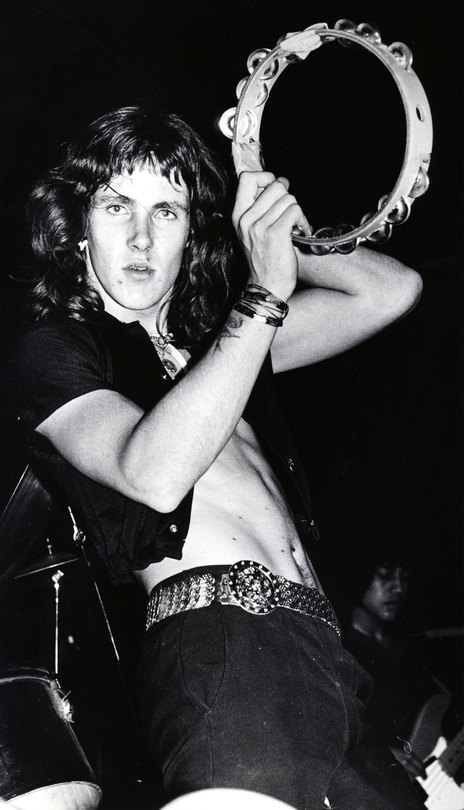
Golden Harvest supported Bob Marley at Western Springs in 1979, playing to their biggest ever crowd. They went down a storm on that important day.
Karl Gordon - vocals
Kevin Kaukau - guitar
Gavin Kaukau - rhythm guitar
Eru Kaukau - bass
Mervin Kaukau - drums
Visit our sister site
NZ On ScreenMade with funding from
NZ On Air